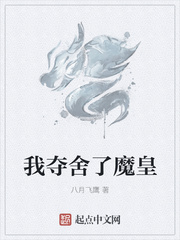LETTER 183
您可以在百度里搜索“The Works of Charles and Mary Lamb — Volume 5 艾草文学(www.321553.xyz)”查找最新章节!
LETTER 183
CHARLES LAMB TO S. T. COLERIDGE
Monday, Oct. 30th, 1809.
Dear Coleridge,—I have but this moment received your letter, dated the 9th instant, having just come off a journey from Wiltshire, where I have been with Mary on a visit to Hazlitt. The journey has been of infinite service to her. We have had nothing but sunshiny days and daily walks from eight to twenty miles a-day; have seen Wilton, Salisbury, Stonehenge, &c. Her illness lasted but six weeks; it left her weak, but the country has made us whole. We came back to our Hogarth Room—I have made several acquisitions since you saw them,—and found Nos. 8, 9, 10 of "The Friend." The account of Luther in the Warteburg is as fine as anything I ever read. God forbid that a man who has such things to say should be silenced for want of £100. This Custom-and-Duty Age would have made the Preacher on the Mount take out a licence, and St. Paul's Epistles would not have been missible without a stamp. Oh, that you may find means to go on! But alas! where is Sir G. Beaumont?—Sotheby? What is become of the rich Auditors in Albemarle Street? Your letter has saddened me.
I am so tired with my journey, being up all night, I have neither things nor words in my power. I believe I expressed my admiration of the pamphlet. Its power over me was like that which Milton's pamphlets must have had on his contemporaries, who were tuned to them. What a piece of prose! Do you hear if it is read at all? I am out of the world of readers. I hate all that do read, for they read nothing but reviews and new books. I gather myself up unto the old things.
I have put up shelves. You never saw a book-case in more true harmony with the contents, than what I've nailed up in a room, which, though new, has more aptitudes for growing old than you shall often see—as one sometimes gets a friend in the middle of life, who becomes an old friend in a short time. My rooms are luxurious; one is for prints and one for books; a Summer and a Winter parlour. When shall I ever see you in them?
C. L.
[Hazlitt has given some account of the Lambs' visit to Winterslow, but the passage belongs probably to the year following. In his essay "On the Conversation of Authors" he likens Lamb in the country to "the most capricious poet Ovid among the Goths." "The country people thought him an oddity, and did not understand his jokes. It would be strange if they had, for he did not make any, while he stayed. But when he crossed the country to Oxford, then he spoke a little. He and the old colleges were hail-fellow well met; and in the quadrangles he 'walked gowned.'" Again, in "A Farewell to Essay-writing," Hazlitt says: "I used to walk out at this time with Mr. and Miss Lamb of an evening, to look at the Claude Lorraine skies over our heads melting from azure into purple and gold, and to gather mushrooms, that sprang up at our feet, to throw into our hashed mutton."
Lamb's Hogarths were framed in black. It must have been about this time that he began his essay "On the Genius of Hogarth," which was printed in The Reflector in 1811 (see Vol. I.).
The Friend lasted until No. XXVII., March 15, 1810. The account of Luther was in No. VIII., October 5, 1809. Coleridge had not been supported financially as he had hoped, and had already begun to think of stopping the paper.
Sir George Howland Beaumont (1753-1827), of Coleorton, the friend and patron of men of genius, had helped, with Sotheby, in the establishment of The Friend, and was instrumental subsequently in procuring a pension for Coleridge. William Sotheby (1757-1833), the translator and author, had received subscriptions for Coleridge's lectures.
"The rich Auditors in Albemarle Street"—those who had listened to
Coleridge's lectures at the Royal Institution.
"The pamphlet." Presumably Wordsworth's "Convention of Cintra."
"You never saw a book-case." Leigh Hunt wrote of Lamb's books in the essay "My Books," in The Literary Examiner:—
"It looks like what it is, a selection made at precious intervals from the book-stalls;—now a Chaucer at nine and two-pence; now a Montaigne or a Sir Thomas Browne at two shillings; now a Jeremy Taylor, a Spinoza; an old English Dramatist, Prior, and Sir Philip Sidney; and the books are 'neat as imported.' The very perusal of the backs is a 'discipline of humanity.' There Mr. Southey takes his place again with an old Radical friend: there Jeremy Collier is at peace with Dryden: there the lion, Martin Luther, lies down with the Quaker lamb, Sewel: there Guzman d'Alfarache thinks himself fit company for Sir Charles Grandison, and has his claims admitted. Even the 'high fantastical' Duchess of Newcastle, with her laurel on her head, is received with grave honours, and not the less for declining to trouble herself with the constitutions of her maids."] The Works of Charles and Mary Lamb — Volume 5



